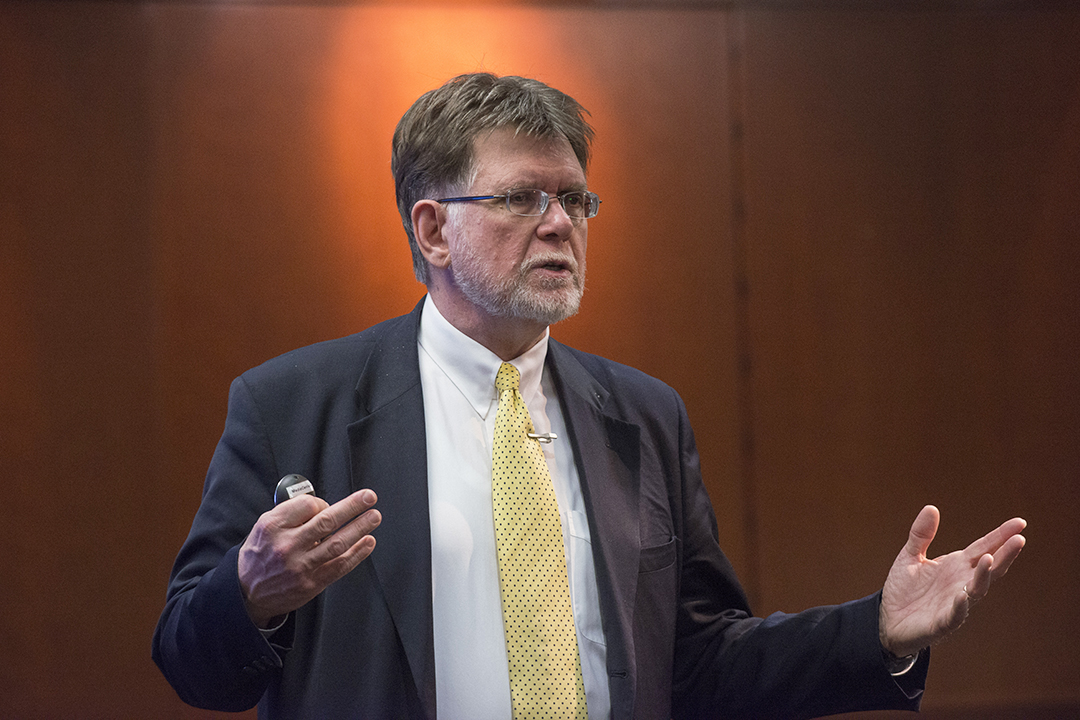The need for global competition norms is growing dramatically, but their development has been hampered by the proliferation of entities involved, GW Global Competition Professor of Law and Policy William E. Kovacic told an audience at the spring edition of the bi-annual A. Sidney Katz Lecture. The lecture was hosted by the Intellectual Property Law Program.
"Since 1990, when there were about 30 jurisdictions with antitrust laws, there are now 130," he said, calling it unprecedented for "so many nations in such a short period of time to have adopted new [competition] regimes."
The avalanche of new players in the competition law arena is not limited to governments and the International Trade Organization. IT agencies and public organizations are weighing in. In the United States, even state governments have their own antitrust laws.
At the same time, countries that were once non-players are now powerhouses. Professor Kovacic noted that China, with an antitrust law that is only eight years old, wields the same clout as does the United States and the European Union in setting trade norms. India is not far behind.
"The centers of gravity will no longer be Washington and Brussels," he told the audience. "You won't be able to develop norms by telling people what to do, you'll have to persuade them."
Professor Kovacic, who also directs GW Law's Competition Law Center, brought a frontline perspective to the presentation. He is a former Federal Trade Commission chair and general counsel, and he currently serves as a non-executive director of the UK Competition and Markets Authority. Additionally, he has advised several governments and international organizations on antitrust and consumer protection issues, government contracts, and the design of regulatory institutions.
He said fast-changing technology has caused a "disruption of people" by eliminating their jobs and causing upheaval in their communities. Norms are needed to respond to this challenge, but the agencies working to develop antitrust policies around the world are too many in number and their effectiveness is measured by how much they do, rather than the quality of their work. Too often, Professor Kovacic said, the focus is on theory rather than implementation.
His recommendation? A more coherent and unified policy position, beginning with U.S. federal agencies.


